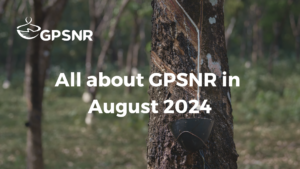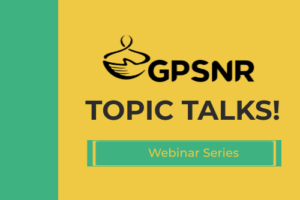As I stood in the rubber processing factory of Halcyon Agri, the burnt smell of rubber and the deafening thumping of the machines assuaging my senses, I couldn’t help but reflect on the remarkable turn my life had taken in the past two years.
In 2023, I traded my scrubs, the fast-paced emergency cases and the quintessential chaos of veterinary clinics to join the Global Platform for Sustainable Natural Rubber (GPSNR) as a Communications and Membership Outreach Associate. As the smell, heat, and sheer scale of operations of Halcyon’s processing plant continued to burn an imprint on my mind, it made me realise the transition to GPSNR has been grounding me in a reality far removed from any veterinary clinic.
In the veterinary field, where precision and care are everything, from diagnosing a complex case or suturing a wound, every action demands meticulousness. At the plant, while the scale and context were vastly different, the underlying principle remained unchanged. Every stage of rubber processing, from chopping the raw material into finer pieces to washing, drying, and packaging, played a critical role in meeting the exacting standards of tyre manufacturers.
As I observed the Halcyon team navigating the plant with practised ease, I couldn’t help but draw parallels between my two worlds. Just as a misstep in surgery could mean life or death, inefficiencies in the supply chain could have far-reaching consequences for sustainability and livelihoods.
The factory floor reminded me that the path to sustainability is not linear. It’s a series of interconnected actions, each requiring deliberate effort and foresight. From supporting smallholder farmers to refining processing methods, every step in the rubber supply chain offers an opportunity to make an impact.
This interconnectedness is also reflected in how Halcyon manages its most essential resource: water. Any water used to wash the rubber is filtered, treated, and reused, creating a closed-loop system that minimises waste. This approach exemplifies the idea that sustainability is not about isolated actions but about fostering a system where resources flow and regenerate, much like nature itself. It’s a reminder that every step, no matter how small, contributes to a larger ecosystem of care and responsibility.
This experience reinforced an essential truth for me: no matter the industry, meaningful change requires collaboration, innovation, and a willingness to learn. It also reminded me that stepping out of my comfort zone was not just a career move but a personal growth journey.
The journey from scrubs to sustainability has been anything but straightforward, yet it’s filled with lessons that resonate deeply. Whether it’s the precision of factory operations or the broader mission of creating a sustainable future, the experience at Halcyon’s processing plant reminded me why I chose this path.
The smell of processed rubber may fade from my memory, but the lessons learned here will stay with me. Sustainability, much like veterinary care, is about ensuring a thriving future, one step at a time.






